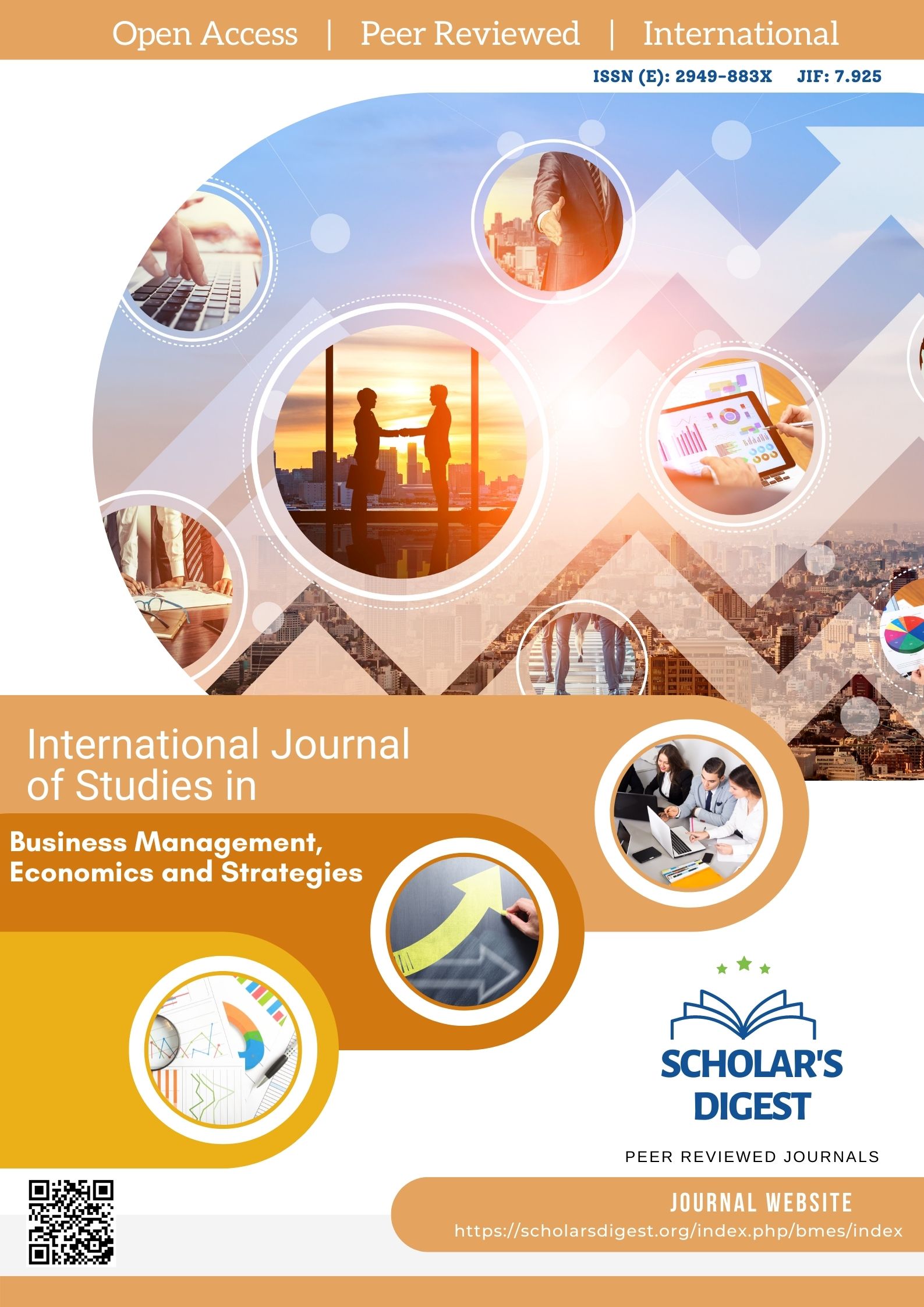THE ROLE OF FOREIGN DIRECT INVESTMENT IN PROMOTING SUSTAINABLE DEVELOPMENT IN DEVELOPING COUNTRIES: A COMPARATIVE ANALYTICAL STUDY BETWEEN EGYPT AND VIETNAM DURING THE PERIOD 2010-2020
Keywords:
Foreign Direct Investment, Promoting Sustainable, Developing Countries.Abstract
This research seeks to inspect the role performed by foreign direct investment in promoting durable growth in developing countries, through a compared empirical analysis between the suitcases of Egypt and Vietnam during the period from 2010 to 2020. The relevance of the research stalks from the increasing addiction on foreign capital as a tool to stimulate economic development and achieve the Sustainable Growth Goals in countries with developing economy. The research used a quantitative and qualitative terms analytical methodology, based on data obtained from reports of international organizations such as UNCTAD and the Globe Bank, in addition to the economic, social and environmental achievement indicators of the two selected commonwealth. The findings decided that FDI has contributed to varied degrees to the achievement of the SDGs, especially in the areas of job creation, technology transfer, and infrastructure growth, with varied impact according to the institutional structure and government rules. The Vietnamese experience also showed more aggregate results compared to its Egyptian counterpart, representative the significance of institutional reforms and supremacy in optimize the benefit of investment flows. Alien. The research provide a set of recommendations for decision-making in developing countries to enhance the development impact of FDI in line with the United Nations 2030 Schedule.
Downloads
Published
Issue
Section
License

This work is licensed under a Creative Commons Attribution-NonCommercial 4.0 International License.








